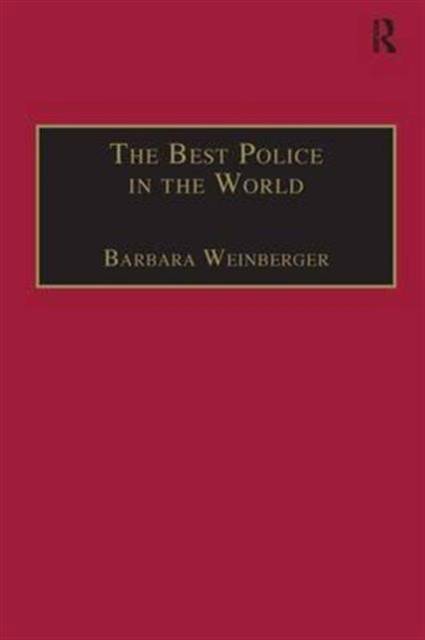
- Afhalen na 1 uur in een winkel met voorraad
- Gratis thuislevering in België vanaf € 30
- Ruim aanbod met 7 miljoen producten
- Afhalen na 1 uur in een winkel met voorraad
- Gratis thuislevering in België vanaf € 30
- Ruim aanbod met 7 miljoen producten
Zoeken
The Best Police in the World
An Oral History of English Policing from the 1930s to the 1960s
Barbara Weinberger
€ 182,45
+ 364 punten
Omschrijving
Based on interviews with former police officers, this book addresses two main issues. Firstly, the question of how the police themselves viewed the priorities of the job and what they considered their role to be. This is the first study to consider this question and its implications for the style and content of police work. Secondly, it challenges the view of the prewar period as a "Golden Age", and shows that policing from the 1930s to the 1960s was not as unproblematic as has often been assumed. Police violence and the fabrication of evidence were more prevalent than the cosy image of the British TV series Dixon of Dock Green would have us believe. The fact that this image often went unchallenged has much to do with prevailing concepts of masculinity and with the greater moral certitude of the police within a more stable and stratified society.
Specificaties
Betrokkenen
- Auteur(s):
- Uitgeverij:
Inhoud
- Aantal bladzijden:
- 248
- Taal:
- Engels
- Reeks:
Eigenschappen
- Productcode (EAN):
- 9781859282236
- Verschijningsdatum:
- 16/11/1995
- Uitvoering:
- Hardcover
- Formaat:
- Genaaid
- Afmetingen:
- 156 mm x 233 mm
- Gewicht:
- 689 g

Alleen bij Standaard Boekhandel
+ 364 punten op je klantenkaart van Standaard Boekhandel
Beoordelingen
We publiceren alleen reviews die voldoen aan de voorwaarden voor reviews. Bekijk onze voorwaarden voor reviews.











